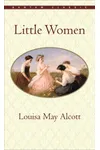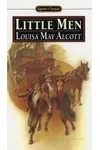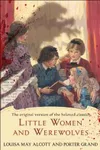Step into the heartwarming world of Little Women, where the March sisters—Meg, Jo, Beth, and Amy—navigate love, dreams, and sisterhood in Civil War-era America! Louisa May Alcott’s timeless series, blending young adult fiction with coming-of-age charm, captures the essence of family and ambition, inviting readers to join a journey that’s as relatable today as it was in 1868.
With its vivid characters and cozy New England setting, Little Women broke ground by portraying women’s lives with depth and authenticity. Ready to meet the sisters who redefined storytelling? Let’s dive into Alcott’s beloved saga!
How Little Women Began
Louisa May Alcott, a trailblazing author raised in a transcendentalist family, drew inspiration from her own life to craft Little Women. Published in two parts in 1868 and 1869, the series was born from Alcott’s desire to depict real, flawed women pursuing their passions. Encouraged by her publisher to write a “girls’ story,” Alcott wove her experiences with her three sisters into a narrative that resonated across generations.
Alcott’s bold choice to focus on domestic life, infused with feminist undertones, made Little Women a groundbreaking work. Written during a time of societal upheaval, the series reflected both personal and cultural struggles, cementing Alcott’s legacy as a literary pioneer.
The Heart of Little Women
The Little Women series spans four key books, though the first two are the most iconic. Little Women (1868–1869) follows the March sisters as they grow from adolescence to adulthood, tackling love, loss, and societal expectations. Good Wives, often included in modern editions of Little Women, continues their stories with marriages and new challenges. Little Men (1871) shifts to Jo’s life as a teacher running a school for boys, while Jo’s Boys (1886) wraps up the saga, exploring the next generation’s adventures.
Alcott’s themes—family, individuality, and resilience—shine through the series’ cozy yet poignant New England setting. The March sisters’ distinct personalities (Meg’s nurturing heart, Jo’s fiery ambition, Beth’s quiet strength, and Amy’s artistic flair) offer something for every reader. Alcott’s conversational style and moral undertones, paired with her focus on women’s agency, make the series a standout in young adult literature.
From Jo’s rejection of traditional roles to Beth’s quiet courage, the books explore femininity, creativity, and the tension between duty and dreams. This blend of heartfelt storytelling and social commentary keeps Little Women fresh and relevant.
Why Little Women Resonates
Little Women’s impact on young adult fiction is undeniable. By centering complex female characters, Alcott paved the way for modern YA heroines. The series’ universal themes of love, loss, and self-discovery have inspired countless adaptations, from Greta Gerwig’s 2019 film to stage plays and TV miniseries. Fans cherish its emotional depth, with Jo March, in particular, becoming a feminist icon for her defiance of gender norms.
Alcott’s work continues to influence writers and readers, proving that stories of everyday struggles can be as powerful as epic adventures. Its enduring appeal lies in its honesty—reminding us that growth, though messy, is beautiful.
About Little Women
- Publication Years: 1868–1886
- Number of Books: 4 (Little Women, Good Wives, Little Men, Jo’s Boys)
- Genre: Young Adult, Coming-of-Age
- Setting: 19th-Century New England
- Notable Adaptation: 2019 Film (Directed by Greta Gerwig)
Grab Little Women and dive into the March sisters’ cozy, inspiring world! Whether you’re Team Jo or cheering for Amy, Alcott’s saga promises a heartfelt adventure you won’t forget.




